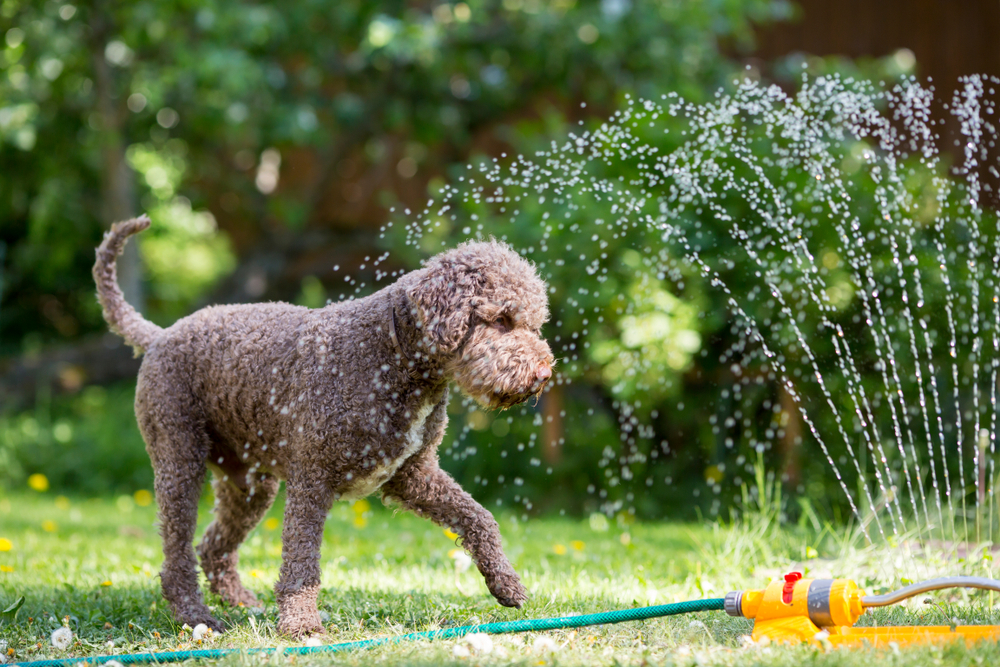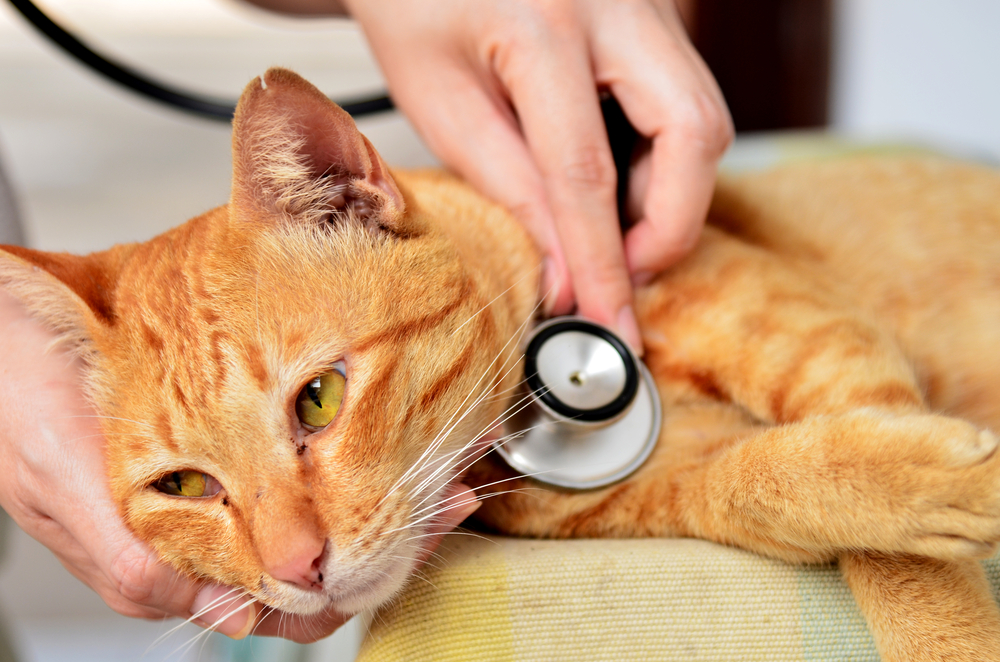
California’s summer temperatures sizzle, and while you can cool off with a refreshing iced beverage, dip in the pool, and blast from the AC, your pet relies on you to help them beat the heat, and prevent heat-related illnesses, including heatstroke, which can be life-threatening. Read our Livermore Family Pet Hospital team’s tips to help keep your furry best friend cool and comfortable all summer long.
#1: Leave your pet at home
You know you should never leave your pet unattended in a parked car, especially during the summer months. You may be tempted to do so when you have to run a quick errand, and park in the shade, leave the windows cracked open, and provide water. Instead, leave your pet at home to keep them safe, because these actions will not prevent your pet from overheating. On a 75-degree day, a vehicle’s interior temperatures—with the windows cracked open—can reach 100 degrees in 10 minutes. If your pet becomes overheated, they can experience irreparable organ damage and death.
#2: Ensure your pet has water and shade
Pets become dehydrated more quickly than humans, and staying hydrated is important, especially when temperatures skyrocket. Ensure your pet has access to fresh, cool, water throughout the day, and add ice cubes to keep their water chilled. In addition to water, cool healthy treats can encourage your pet to increase their fluid intake. Search online recipes, or try making these hydrating snacks:
- Chilled carrot — A tasty treat and an inexpensive chew toy
- Frozen chicken broth —Add chicken broth ice cubes to your pet’s food.
- Frozen green beans — Fun to chew and low calorie
In addition, ensure your pet has access to shade when outdoors so they can escape the sun’s blazing rays, and limit their time outdoors in the heat.
#3: Choose pet-friendly sunscreen
While your pet’s fur covers most of their body, exposed skin is susceptible to sunburn. Your pet’s body areas most likely to burn include their nose, ear tips, muzzle, eyelids, and belly. Breeds with naturally thin hair, and especially hairless breeds, have a higher sunburn risk. Sunscreen can protect your pet from sunburn, but always use sunscreen formulated specifically for pets.
If your pet is comfortable wearing a hat, choose a sun hat made specifically for pets, which can protect exposed skin on their head.
#4: Protect your pet’s paws
Hot pavement can easily burn your pet’s paw pads, so protect them by avoiding walking outdoors during the middle of the day when temperatures are high. To ensure the pavement is safe for your pet, test the surface with your hand. If you cannot keep your hand on the pavement comfortably for 10 seconds, the surface is too hot for your pet. Instead, walk your pet in shaded grassy areas, and if possible, carry your pet when crossing hot paved areas and roads.
#5: Monitor temperature and humidity levels
Although you know that high temperatures can be unsafe for your pet, did you know that high humidity levels can also endanger their health? On excessively humid days, pets can struggle to cool down, and their body temperature can reach a life-threatening level. Keep in mind that the higher the humidity, the lower the temperature needs to be to have a negative effect on your pet’s health.
When the outdoor temperature is high, exercise your pet early in the morning or late at night when the sun’s rays are less intense. Keep your walks short, and avoid strenuous outdoor aerobic activities.
#6: Recognize heatstroke signs in pets

If a pet’s internal body temperature rises high enough, they may experience heatstroke, which can lead to organ damage and death. Heatstroke’s signs include:
- Excessive panting
- Lethargy
- Drooling
- Vomiting
- Diarrhea
- Bright red gums
- Convulsion
- Collapse
If your pet shows any of these signs, call our Livermore Family Pet Hospital team immediately, or take your pet to the nearest veterinary emergency clinic.
Any pet can develop heatstroke, but some pets are at a higher risk for heat-related conditions, including:
- Flat-faced (i.e., brachycephalic) breeds, such as pugs
- Pets with chronic illnesses
- Senior pets
- Overweight pets
While you and your pet enjoy a fun-filled summer, keep them cool and safe by following our heat safety tips. Remember, summer is also prime time for infectious diseases associated with ticks, fleas, and other parasites. Contact our Livermore Family Pet Hospital team to schedule your pet’s annual wellness exam and heartworm test.

